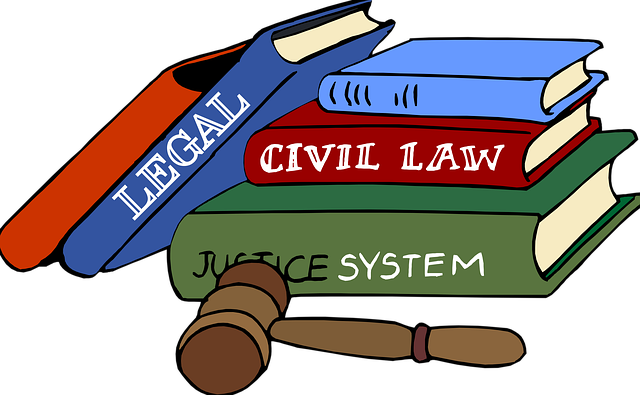Securities class actions are powerful legal tools that protect investors from fraudulent practices, allowing affected shareholders to hold responsible parties accountable under federal and state regulations. Famous historical cases like Brown v. Board of Education and the Flint Water Crisis have reshaped legal landscapes, driving significant changes in corporate governance and transparency. Successful securities class actions require robust evidence, a deep understanding of complex structures, and expert legal strategies to unite investors and achieve substantial settlements or reforms. Skilled attorneys play a pivotal role in navigating these challenging cases, leveraging document discovery, expert witnesses, and tailored legal arguments to secure justice for individuals and society at large.
Securities class actions are powerful legal tools that empower investors by holding companies accountable for fraud or misconduct. This article delves into the intricacies of these actions, offering a comprehensive overview from understanding the basic legal mechanisms to exploring key factors for success. We also shed light on famous class action lawsuits in history, providing notable examples and their impact, and highlight the crucial role attorneys play in securing justice for affected investors.
- Understanding Securities Class Actions: An Overview of Legal Mechanisms
- Famous Class Action Lawsuits in History: Notable Examples and Their Impact
- Key Factors and Considerations in Successful Securities Class Actions
- The Role of Attorneys and Legal Strategies in Winning Securities Class Suits
Understanding Securities Class Actions: An Overview of Legal Mechanisms

Securities class actions are a powerful legal mechanism designed to protect investors from fraudulent or misleading activities in the securities market. These cases allow shareholders who have suffered financial losses to band together and seek collective redress against companies, executives, or other defendants responsible for violations of federal and state securities laws. Understanding the intricacies of these legal mechanisms is crucial, especially when considering the high-stakes nature of many securities class action lawsuits.
Some of the most famous class action lawsuits in history have involved massive financial institutions and complex schemes, driving significant changes in corporate governance and investor protection regulations. Throughout all stages of the investigative and enforcement process, from initial discovery to trial and settlement, these cases demand meticulous attention to detail and a deep understanding of both securities law and white-collar defense strategies.
Famous Class Action Lawsuits in History: Notable Examples and Their Impact

Some of the most famous class action lawsuits in history have left an indelible mark on legal landscapes across the country. Cases like Brown v. Board of Education (1954) challenged racial segregation, paving the way for a more integrated society. This landmark decision, brought as a class action, underscores the power of collective action to address systemic injustices. Another notable example is The Flint Water Crisis litigation, where thousands of residents joined forces to hold accountable those responsible for their community’s exposure to toxic lead in drinking water. These cases showcase how class actions can drive significant changes and secure justice for groups affected by corporate malfeasance or government negligence.
Over time, successful class action lawsuits have evolved, tackling various issues from antitrust violations to consumer protection. Their impact reverberates far beyond the courtrooms, fostering a culture of accountability and transparency. Through these collective efforts, plaintiffs’ attorneys have won challenging defense verdicts, ensuring that wrongdoers are held accountable and victims receive the compensation they deserve. This has encouraged more individuals to stand up for their rights, knowing that their voices can be heard and action taken on their behalf.
Key Factors and Considerations in Successful Securities Class Actions

Successful securities class actions require a meticulous consideration of several key factors. One of the primary aspects is the strength of the evidence. With a robust and unprecedented track record of successful cases, plaintiffs’ attorneys must assemble comprehensive documentation, including financial records, correspondence, and expert opinions to demonstrate misstatements or omissions by defendants. Additionally, these lawsuits often span complex corporate structures, necessitating a thorough understanding of securities regulations and market dynamics.
Another crucial element is the ability to rally affected investors under one banner. These cases not only aim to secure monetary compensation but also serve as a powerful tool for accountability, especially in cases involving white-collar and economic crimes. Famous class action lawsuits in history have often sparked significant changes, fostering transparency and reform within corporations and industries. Engaging with the philanthropic and political communities can further bolster these efforts, ensuring that justice not only serves individuals but contributes to broader societal reforms.
The Role of Attorneys and Legal Strategies in Winning Securities Class Suits

In securities class actions, attorneys play a pivotal role in navigating complex legal landscapes and advocating for investors’ rights. These high-stakes cases often involve massive financial losses and require sophisticated legal strategies to achieve justice. Famous class action lawsuits in history, such as those against major corporations or financial institutions, have set precedents and reshaped industries. Skilled attorneys leverage extensive knowledge of securities laws, regulatory bodies, and market trends to build compelling cases.
Effective legal strategies in these suits include thorough document discovery, expert witness testimony, and persuasive legal arguments tailored to each unique case. Attorneys must also consider the potential for jury trials, which can significantly impact the outcome. Across the country, notable class action lawsuits have resulted in substantial settlements, underscoring the importance of robust legal representation. By employing innovative approaches and staying abreast of evolving legal landscapes, attorneys can secure favorable outcomes in these challenging yet impactful cases.
Securities class actions play a crucial role in holding corporations accountable for fraudulent or negligent activities. By examining famous class action lawsuits in history, we gain valuable insights into the impact these legal mechanisms can have on markets and society. Understanding key factors, considerations, and the strategic roles of attorneys is essential for navigating these complex cases successfully. Through robust legal strategies, securities class actions not only secure financial compensation for affected investors but also promote transparency and fairness, ensuring a more accountable corporate landscape.






